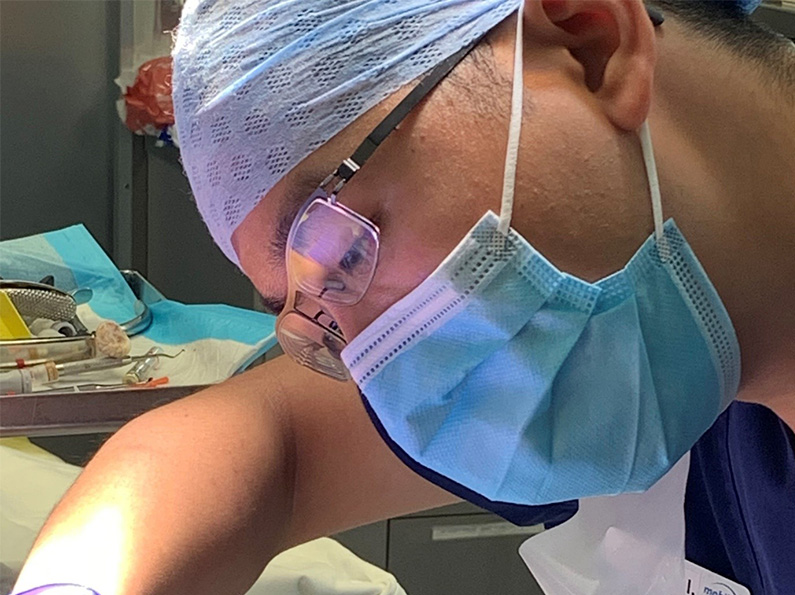When we posed the question “Would you encourage other students to work on the mobile surgical unit?” to Jeremy Chua, a sixth-year medical student at the University of Otago in Dunedin, he reacted with, “Absolutely! It’s an unparalleled experience that you will likely never find elsewhere.”
With GP shortages a common theme, particularly across rural areas of New Zealand, Mobile Health offers sixth-year New Zealand medical students an opportunity to immerse themselves in rural communities to practice medicine and encourage them to pursue rural health careers. The placement is part and parcel of their studies which requires them to complete an elective placement for up to 12 weeks.
Jeremy (pictured above: Jeremy Chua, trainee intern, working on the Mobile Surgical Unit – Te Waka Hauora, completing a tooth extraction of lower frontal incisors on a paediatric patient) has been considering a future as a rural general practitioner and with the help of the Rural General Practice Network (NZRGPN), secured a placement at Otautau Medical Centre, including two weeks spent in Dunstan Hospital. He first learned about the mobile surgical unit from the Matagouri Club, a rural health organisation for Dunedin-based students studying health professional programmes and worked on the mobile surgical unit for two weeks earlier this year. He travelled the South Island and enjoyed how the surgical unit allowed him to travel to various rural locations – starting with the first week in Rangiora and travelling down to Oamaru, Balclutha and finishing the week in Gore. It was during this placement he acquired more knowledge and skills on the job to grow his education about medicine in a rural setting; developing his deeper understanding and awareness of practicing medicine in rural New Zealand.
“The surgical unit started in the bulwarks of Clyde before swinging through to the lakes of Queenstown. We then chugged along from Queenstown to Christchurch. After restocking equipment in Christchurch, we headed up to Waikari. Finally, we completed the trip at the coasts of Westport and Motueka.”
Describing the work experience as a “true adventure”, he describes his personal journey as being like “a child stepping onto an excursion on the magic school bus crossed with a South Island road trip with senior colleagues. Operating the technical features of the mobile surgical unit simulated the feeling of being a crew member of a spaceship.
“Having five years of medical school and two years of clinical experience under my belt also enabled me to assist in operations with confidence. During these procedures, I felt like a junior member of Starfleet travelling with senior officers to provide medical aid for remote worlds. That may be an exaggeration using some imagination… but that’s how cool it felt!”
 His hands-on experience allowed him to participate in numerous operations and procedures in different medical specialities and this allowed him to grow his skillset. “I wanted to get to the point of being able to explain ‘how’ and ‘why’ some surgeries are performed. In the span of two weeks, I was able to do just that – for colonoscopies, inguinal hernias, endometriosis and dental procedures.” (Pictured left: Jeremy with Dr Graeme Millar, general surgeon who is suturing an inguinal hernia repair while Jeremy assists with cutting knot ends.)
His hands-on experience allowed him to participate in numerous operations and procedures in different medical specialities and this allowed him to grow his skillset. “I wanted to get to the point of being able to explain ‘how’ and ‘why’ some surgeries are performed. In the span of two weeks, I was able to do just that – for colonoscopies, inguinal hernias, endometriosis and dental procedures.” (Pictured left: Jeremy with Dr Graeme Millar, general surgeon who is suturing an inguinal hernia repair while Jeremy assists with cutting knot ends.)
He found the anaesthetic experience was particularly valuable and was pleased to get exposure to dental treatment and observed everything from fillings to crowns and even had the opportunity to extract some teeth. “By watching and talking with the anaesthetic team, I discerned the principles of putting someone to sleep and how to keep them stable as they were down under. I was able to advance a core skill – inserting intravenous lines, not just on adults but on children as well, recognising how to account for smaller vessel sizes and younger skin. As we performed dental procedures on young children, I also gained an appreciation of the challenge of putting children to sleep; it is often a frightening experience for them, and hard on the parents as well. However, I was enthralled at the experience and gentle manner of the anaesthetic team in calming the children before their procedure. Their expertise made the experience much more manageable for both the patients and their parents.”
He accounts time spent in theatre gaining experience beyond the waiting room, such as stitching wounds. “With the help of the surgeons, I had some guidance in closing small ‘key-hole’ surgery wounds as well as larger open wounds. It was very useful to get hands-on experience in my final year so that I’m well-equipped to stitch wounds in my first years as a junior doctor next year.”
As with many students who work onboard the surgical unit, the time spent with different clinical teams each day enables them to build relationships and learn about their personal experiences. “What I found most valuable in this journey was being able to connect with the staff, hear their stories, as well as navigating the complexities of the healthcare system in New Zealand.”
The surgical unit runs a tight and efficient schedule and students enjoy learning about the workflow and becoming familiar with the real experience of working in a theatre, and how to work as a member of the team. “There was a strong sense of camaraderie among the crew and getting to know them and work alongside them was priceless. By the end of the run, I was able to facilitate the morning timeout and safety briefing.”
The sight of blood and assisting with young children may have been expected, but what surprised him was how well the onboard crew were looked after. “I imagined that the long journeys would make the days long and tiring – and that to undertake a role on the surgical unit was inherently self-sacrificial. I discovered that the team was well-accommodated, well-fed and well-compensated. While it may have felt gruelling at first, I learned to get used to the early starts. I began to enjoy the day and understand why many surgeons and anaesthetists resolved to come back!”
“In addition to seeing the diverse lands of New Zealand, students get a chance to observe a variety of surgical procedures in a top-notch facility with the most amicable and proficient crew in town. I cannot recommend it enough!” he beams.
Jeremy’s mindset was to become a rural general practitioner however, the turning point was during his time on his placement and is now inspired to become an anaesthetist. “Regardless of wherever my medical career takes me, I aspire to become a proficient practitioner who inspires confidence and calm in all my patients.”
It’s clear that his reflection upon his trip has resonated with Jeremy on a deeper level and aspires to embody and reciprocate qualities he saw in staff with his future patients; something which can transform communities at all levels from individual to family/whanau and society.

